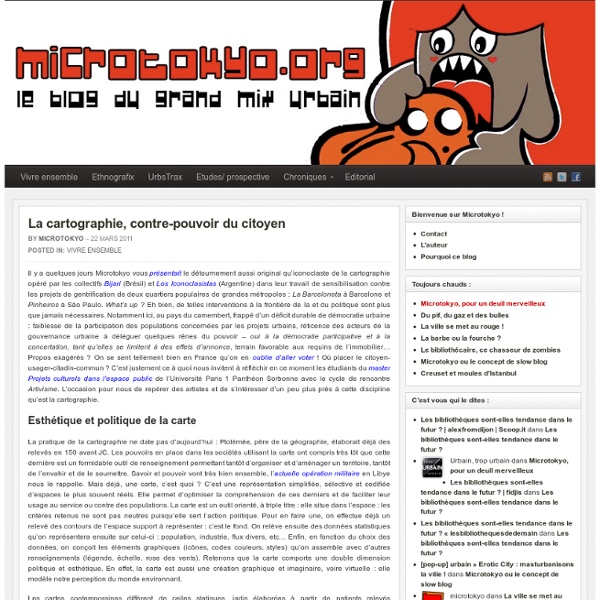La cartographie, contre-pouvoir du citoyen

Dieci anni senza Manolo | Fútbologia
[Riceviamo e pubblichiamo. Oggi ricorrono i dieci anni dalla scomparsa di Manuel Vázquez Montalbán. Alessandro Gori lo aveva intervistato nel 1997] di Alessandro Gori Qualche giorno fa ho trovato per caso un articolo che fin dal titolo mi ha provocato un groppo in gola: «Diez años sin Manolo». Mi era proprio sfuggito, sono trascorsi già dieci anni dal 18 ottobre del 2003, quando ci lasciava per sempre Manolo Vázquez Montalbán, colpito da un infarto durante lo scalo all’aeroporto di Bangkok rientrando dall’Australia. Manolo era un intellettuale a tutto tondo, debordante autore di migliaia di articoli e centinaia di libri: giornalista, scrittore di successo, creatore dell’investigatore-buongustaio Pepe Carvalho, poeta e umorista, antifranchista che conobbe il carcere (come accadde a suo padre per lo stesso motivo), saggista e militante di sinistra, gourmet, ma anche innamorato di calcio e fanatico culé (tifoso del Barça). A Manolo un progetto come Futbologia sarebbe sicuramente piaciuto.
floatingsheep
Mapping hate speech: homophobia and racism on twitter | News
Here on the data team, we tend to be skeptical about the accuracy of semantic analysis. But the students and professors at Humboldt State University who produced this map read the entirety of the 150,000 geo-coded tweets they analysed. Using humans rather than machines means that this research was able to avoid the basic pitfall of most semantic analysis where a tweet stating 'the word homo is unacceptable' would still be classed as hate speech. • Who made this?
Cartographie : la révolution numérique
LE MONDE SCIENCE ET TECHNO | • Mis à jour le | David Larousserie L'époque change. Disparues les prises de bec dans un couple autour d'une carte routière. Pendant ce temps-là, une initiative bénévole, OpenStreetMap, enregistrait début 2013 son millionième contributeur participant à la réalisation d'une carte mondiale librement accessible et utilisable. La cartographie d'aujourd'hui n'est plus celle d'hier. C'est Google, avec Google Maps, qui a montré au public la puissance de ces outils, développés à l'origine par des professionnels pour des professionnels. Trois modèles, détaillés ici, contribuent à ces transformations : le système public, le commercial et le collaboratif. La précision Honneur au fleuron national de la cartographie, l'IGN. A partir de cette base de données, les cartes à différentes échelles sont construites. Depuis 2011, l'IGN s'est aussi lancé dans un énorme chantier : redessiner la France au 25 000e. Des concurrents ont suivi le même modèle.
Related:
Related:



